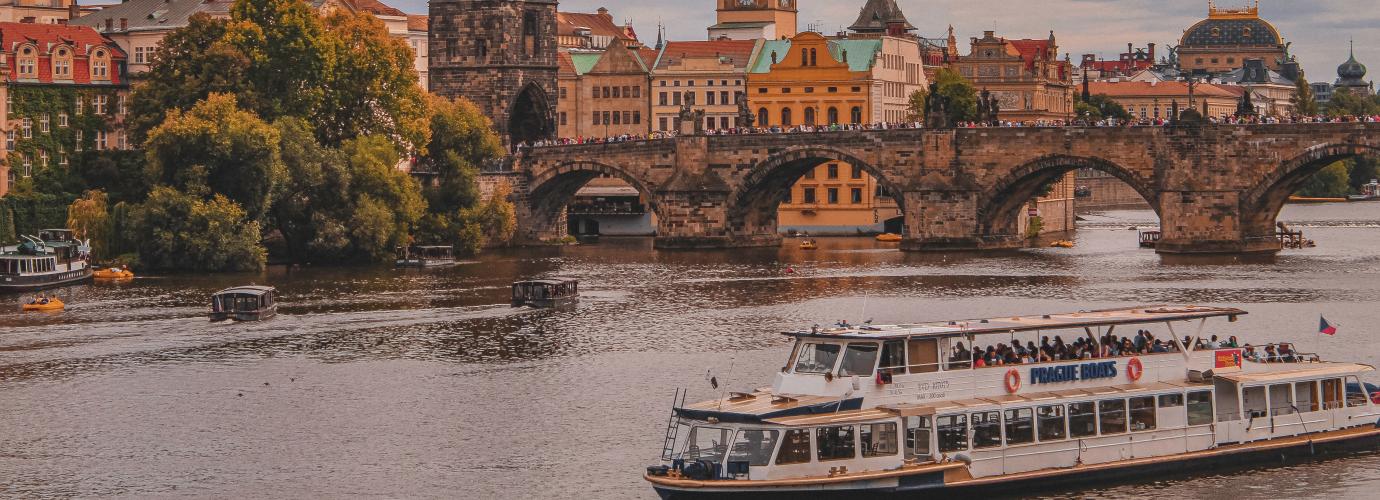Organisational variations of pre-primary education
Since the 2016/17 school year, the forest nursery schools (lesní mateřské školy) that fulfil legal conditions became an official type of a nursery school (mateřské školy). According to the Education Act, education in the forest nursery school takes place mainly outside and the school does not have a classic school building. In most of the aspects (content of education, management and funding, teacher qualification) the same rules apply to them as for mainstream nursery schools. However, they are subject to reduced hygienic requirements. On the contrary, lower number of children in a class and lower number of children per teacher are required. The length of stay in school is also restricted. Forest nursery schools of all types and some eco nursery schools are united under the Association of Forest Nursery Schools (Asociace lesních MŠ).
Language training groups at nursery schools
For foreign children who are subject to the compulsory pre-primary education, the language training groups are established if there are 4 or more such children in the school. If there are less children in the school, individual language support is granted to them.
Teaching in national minority languages at nursery schools
Members of national minorities have the right to be educated in the language of the respective national minority. In 2021/22 school year, there were 24 nursery schools (mateřské školy) in the Czech Republic providing education to 854 children in Polish. (Source: Ministry of Education, Youth and Sports.)
Alternative education programmes at nursery schools
Nursery schools (mateřské školy) enjoy a high degree of flexibility in organisational matters. The existing alternative structures comprise of several Waldorf, Montessori and Christian nursery schools.
The Czech version of the international programme Step by Step (Začít spolu), implemented and monitored by the company Step by Step ČR, o. p. s., has been in use since 1994. An inclusive approach to ethnic minorities and children from disadvantaged environments is its main feature. More than 200 nursery schools and basic schools (základní školy) work on the basis of this programme (2020).
The focus of pre-primary education on ecology is a new trend. We are talking either about eco nursery schools (ekoškolky) that put greater emphasis, in contrast to regular nursery schools, on ecology education, or above-mentioned forest nursery schools.
Nursery schools at medical facilities
The nursery schools at medical facilities can be also considered to be the organisational variant of nursery school.
Preparatory classes (přípravné třídy) are established in basic schools (základní školy) for children in the last pre-school year (preferentially for children with the postponement of compulsory school attendance) where there is a presumption that this education may balance out their development. They fulfil the compulsory pre-primary education there.
Home education during compulsory pre-primary education
Compulsory pre-primary education can take the form of individual tuition (home education) without regular attendance at school.
Alternative pre-school facilities
Apart from the nursery schools other types of preschool facilities for older children exist.
Centres for Pre-school Children
The project Centres for Preschool Children (Centra pro předškolní děti) arose in Prague in reaction to insufficient number of places in nursery schools. These centres operate under the framework of leisure time centres for children and youth (listed on the registry of schools and school facilities). They operate in the mornings of all days of the week and can be attended by preschool age children both regularly and occasionally. The maximum number of children, mostly between 3 and 6 years, in one group is 15. Children are always supervised by experienced and qualified teachers. They provide education programmes focused on the development of movement, music, art and game activities, as well as personal and social development that aim at satisfying children’s personal interests. The project is inspired by the Framework Education Programme for Pre-primary Education.
Non-profit organisations (unincorporated associations – spolky – or benevolent corporations – obecně prospěšné společnosti) can run facilities only on the basis of general legal regulations (e.g. various preschool clubs). Organisations can apply for grants from programmes of the Ministry of Education, Youth and Sports or financial support for European Social Fund projects.
Facilities for children over 3 years of age on the basis of the trade
Facilities for children over 3 years of age may operate on the basis of the unqualified trade Out-of-school Education (Mimoškolní výchova a vzdělávání), the organisation of courses, training, including lecturing activities. "Education of children over 3 years of age in preschool facilities, unless these facilities are listed on the registry of schools and school facilities“ is part of the trade; thus, such facilities do not provide education. They follow the same hygienic regulation as regular nursery schools; however, in other aspects (educational documents, qualification of pedagogues, number of children per group etc.), no official rules apply to them. Such facilities are subject to the inspection of the Trade Licence Office.
Childrenʼs centres in the asylum facilities
For the children of the applicants for international protection (asylum seeker) there are childrenʼs centres (dětská centra) in the asylum facilities.

